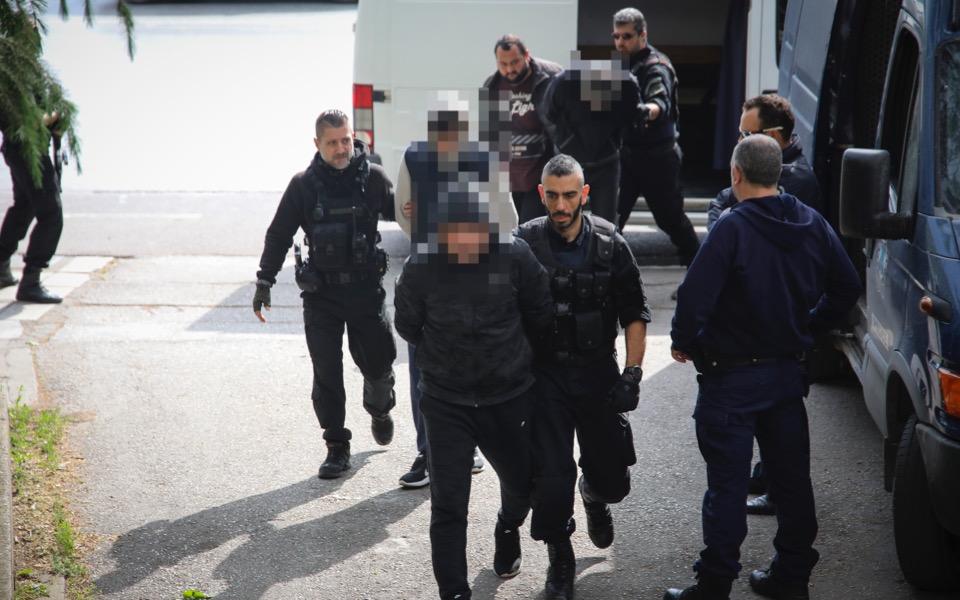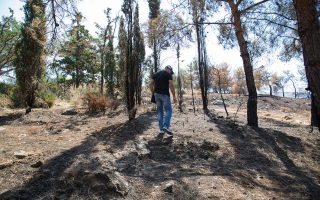Greek and European authorities join forces to against Georgian mafia

It was 9.30 a.m. on July 22, 2013, when the president of the three-judge Felony Appeal Court in Thessaloniki, northern Greece, called the head of the Spanish organized crime division to the stand to testify as the only witness in the prosecution of Lasha Shushanashvili, the then-52-year-old suspected boss of the Georgian mafia.
Known as “the Fat Man,” Shushanashvili had been arrested on a Spanish international arrest warrant a few months earlier in the upscale Asteras resort in Vouliagmeni, southern Athens, and charged with running a criminal organization.
“Our department launched an investigation into the activities of a criminal organization led by Kakhaber Shushanashvili, but it later turned out that the real leader was his brother, Lasha, who ran things across Europe,” Juan Rueda, the now-retired Spanish police commander, said after being sworn in.
“The organization was made up of 80 individuals in Switzerland, Italy, Germany, France and Spain, all under orders from Lasha. They transported money from robberies in Georgia and Greece, while phone taps revealed that Lasha himself handled the profits,” said the Spanish officer.
The transcripts from the trial are extremely revealing of the structure and activities of the organization known as Vory V Zakone, or Thieves-in-Law.
Earlier this month, police in Thessaloniki arrested members of the organization after a tumultuous chase through the streets of Pylaia and a great deal of violence. The crackdown was the result of a secret investigation that had started in the spring of 2017 in the Caucasus, in Normandy in France and in Thessaloniki, with the participation of 300 French and Greek police officers. By the end of the so-called “Caucase Normandie” operation, officers had slapped handcuffs on more than 45 suspects – all Georgian nationals with criminal records for theft and burglary – dealing a significant blow to the organization.
Revelations in the wake of that operation also confirm a recent story in Kathimerini about a meeting held in Thessaloniki last September of high-ranking Vory from around Europe.
Continuing his testimony in 2013, Rueda spoke of a contract killing Lasha had ordered against a Russian mobster from a rival gang. “They tried to kill him several times and eventually managed to do so in Marseilles,” the Spanish investigator told the court, adding that he had photographic evidence of meetings between the suspects in the crime in Barcelona and Nice prior to the assassination.
The mob chief’s brother, who also served as the gang’s treasurer, was arrested in Spain in March 2010 in a Europe-wide operation, which however, Rueda said, had failed to track down Lasha. He was believed at the time to be staying at a well-known hotel in Thessaloniki. “The Georgian authorities said he paid 800,000 euros to avoid arrest,” Rueda said, accusing Greek police of accepting a bribe.
The appeal court eventually convicted the 57-year-old Georgian to 14 years behind bars for running a criminal organization despite his protestations of innocence and claims that he was being framed by former Georgian president Mikheil Saakashvili, a purported business rival. He was sent to Diavata Prison and released two years later due to ill-health.
Five years later, history appears to have repeated itself. In April 2017, French police investigating a series of robberies in the seaside resort of Cannes alerted their Greek counterparts to the detection of several phone calls made by their suspects to a number in Thessaloniki, prompting police there to set up a wiretap. The owner of the number was a man called Nodar Shukakidze, “Shuka,” who was one of Lasha’s two closest associates and ran the Thessaloniki part of the gang’s operations.
Shuka was also present at the pan-European Vory meeting in Thessaloniki that had also been reported by the website Crime Russia in September 2017.
The “Caucase Normandie” joint police operation carried out earlier this month resulted in 15 arrests in Thessaloniki and more than 30 in France. No charges were brought against Lasha and his two lieutenants, but French authorities did issue arrest warrants, which means that the three men will most likely not stand trial in Greece but be extradited. The gang’s foot soldiers were charged with 56 break-ins in Thessaloniki.
According to sources, when one of the suspects was asked by an investigator why the group had set up shop in Greece, the Georgian gangster said, “Because it’s the only country in the European Union that doesn’t have a special police force to deal with us.”





